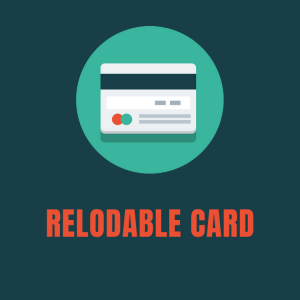VCC
Contents
VCC - VIRTUAL CARD
In this digital era, people are being comfortable buying things from online sitting at the office or home. This saves time, energy and ensures comfort. On the other hand, paying through cards to the websites is being unsafe as the risk of leaking information is rising. As a result, the topic of payment safety on the internet is being one of the most discussed topics around the world.
Today, you’ll find a few online payment options that’ll allow you to make payment online without the risk of leaking your personal information. All of the methods have advantages as well as some disadvantages too. Let’s know about some online payment systems that allow you to make payments online safely.
Virtual Credit Card Numbers
Virtual Credit Card Numbers are often called Virtual Credit Cards or VCCs. These are not physical cards but the alternative of actual credit cards. Like a credit card, a VCC has a 16-digit card number.
As a result, when any website asks for a credit card number, you can use the VCC number there and get the payment done. Most of the VCCs are single-use numbers. But you’ll find reloadable VCC numbers too. These come with an expiry date. You have to use the card before the date.
There are two reasons why people are using VCCs- security of information and comfort in use. You can issue the card without giving your actual bank account information and other personal information. Again, as the card doesn’t have any of your information included in it, even if the seller’s site is not trusted, they won’t get your personal information. The only thing that they can steal is the one-time card number that can’t be used again.
Using VCCs is also convenient for you. You can get a VCC number from the issuer’s website and get the number as soon as possible through e-mail. You won’t have to face a long verification process and wait for the physical card to reach your hand. You can get a VCC quickly and use it instantly. Thus it ensures comfort in use.
Platforms where you can use VCC-
- You can use these cards for shopping from suspicious and doubtful websites, only to be on the safe side.
- Using VCC for buying different subscription services saves you from the problem of automatic cutting the charge from your card. In most cases, we forget about the services we subscribe to. After the subscription period is over, it again cut from your balance. If you use VCC, they can’t cut from your balance.
- You can give some pocket money to your children through VCC. They can buy something online using it.
As I’ve said, all the payment methods have some disadvantages, VCCs have some disadvantages too.
The disadvantages of VCC are given below-
- You can use the card only in online transactions.
- Virtual Credit Cards are not refundable most of the time.
- All the online platforms and booking services don’t accept Virtual Credit Cards.
- Still, VCCs are bound by availability, accessibility, and usability.
- The payment won’t be fully anonymous. Only personal information will be hidden.
However, still, the use of VCCs is increasing as it ensures the security of personal information and account.
Instant Credit Card Numbers
These seem to be similar to Virtual Credit Card Numbers. The main difference between these two is the rapidity of the delivery. While Virtual Credit Cards take a bit of time to reach you, ICCNs reaches you as soon as you pay for it. Some organizations like American Express, Capital One, and USAA offer ICCN to all their cards where other organizations offer ICCN to only specific cards.
However, Instant Credit Card Numbers are not anonymous all the time. Besides, these can’t ensure security as VCCs can ensure.
Masked Card Services
The name says the most of it- this service masks a card. This service mainly masks the details of your payment. It creates a Virtual Credit Card that is tied to your bank card or the fund you are going to deposit.
There might be some differences in the services depending on who is providing the service. But masked card services enhance the security of your card.
In some services, you can mask your payment instrument as well as the personal data. As a result, they won’t get access to the card, and they won’t know who is making the payment. But still, you are not totally unidentifiable. But comparing to VCC and ICCN, this one is better in case of security.
Digital Wallets
Digital Wallets are another method that ensures online payment safety. This wallet stores the information about your bank card at a safe place. Whenever you make a payment, it generates a one-of-a-kind token and that is used instead of your real bank card number. Thus, your information remains safe.
However, you can’t make payment through Digital Wallets everywhere on the internet. This is a disadvantage.
You can take the wallet service from MasterCard Masterpass or Visa Checkout. They offer wallet service with basic bank cards. But before using, read the terms and conditions carefully.
To choose the right credit card, you have to know the credit card environment first. In the credit card environment, card issuer, and card network- these two terms are used frequently.
Most of the people are confused between these two terms. They think that both mean the same thing.
But these two are actually different and mean two different types of institutions or parties. If you have the wrong idea too, read the article and clear the confusion by knowing the right thing.
Credit Card Networks
Credit card networks are the institutions that control and determine where their credit cards will be accepted and where those won’t be accepted. Besides, these also work to make the transactions between the merchant and issuers smooth.
The popular credit care networks around us are Visa, MasterCard, American Express, Discover, etc. Credit card networks are in charge of the transaction fees and other related costs that are settled between the merchants and the card issuers.
On the other hand, they don’t have any control over the charges that the users pay, for example- interest rates, annual fees, foreign transaction fees, over-limit fees, and late fees.
Credit Card Issuers
Credit card issuers are the bank or financial institutions which directly provide the card to the customers. They are often called ‘Issuing Bank.’ Some credit card issuers are Chase, Capital One, etc.
Credit card issuers have control over the rules and regulations that are applied for the users of credit cards. Credit card issuers can-
- Approving or denying the applications for credit cards
- Setting the most rules and regulations that are applied for cad users
- Paying for the transactions that the cardholders do
- Collecting the payments from the cardholders
- Providing customer service to ensure customer satisfaction
A credit card network uses credit card issuers to issue the card to the users or direct consumers. But this is not a must. If the network wants, it can issue cards to the users by itself too.
For example- American Express and Discover are both credit card networks and credit card issuers. These two organizations issue their cards to the users directly by themselves, and no mediator is involved here.
On the other hand, Visa and MasterCard are two credit card networks. These networks have involved credit card issuers like Chase, Capital One and others as intermediaries to issue their cards to the users.






